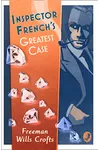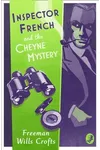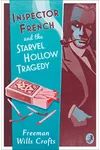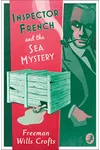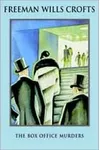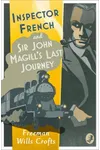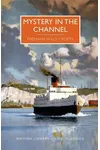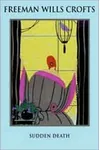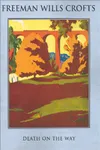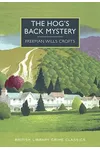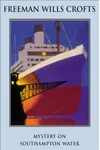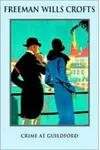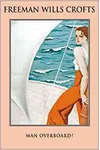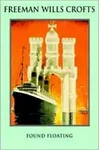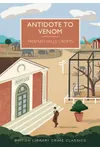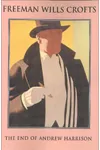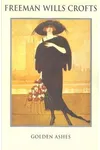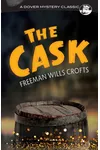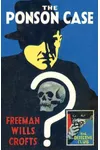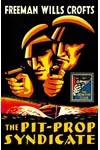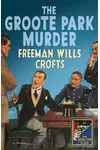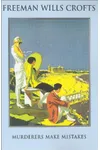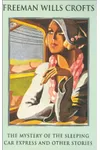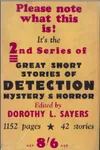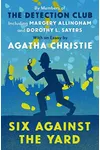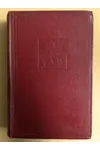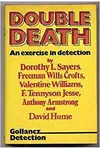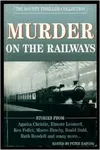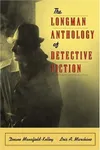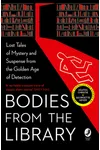Picture an Irish storyteller who turned train timetables into thrilling mysteries—meet Freeman Wills Crofts! Born in Dublin in 1879, this railway engineer became a titan of Golden Age detective fiction, crafting meticulous plots that captivated readers and earned praise from Agatha Christie herself. His Inspector French series redefined crime novels with a focus on realistic police work.
Crofts’s knack for unraveling ‘unbreakable’ alibis made him a master of the genre. With a career spanning over 30 novels, his stories remain a treasure for mystery lovers. Let’s dive into the life and legacy of this unsung hero of detective fiction!
The Making of Freeman Wills Crofts
Born on June 1, 1879, at 26 Waterloo Road, Dublin, Freeman Wills Crofts grew up in a vicarage after his father’s early death. Raised in Gilford, County Down, he attended Methodist and Campbell Colleges in Belfast. At 17, he apprenticed under his uncle, Berkeley Deane Wise, a chief engineer, sparking a lifelong passion for railways. By 1900, he was a district engineer in Coleraine, later becoming chief assistant engineer in Belfast. A serious illness in 1919 led him to write his debut novel, The Cask, launching a remarkable literary career.
Freeman Wills Crofts’s Unforgettable Stories
Crofts’s novels are celebrated for their intricate plotting and logical precision, often weaving railway themes into the narrative. His debut, The Cask (1920), a bestseller, follows a murder mystery unraveled through meticulous police work. Inspector French’s Greatest Case (1924) introduced Inspector Joseph French, a methodical Scotland Yard detective who starred in 30 novels. French’s dogged persistence shines in The Starvel Tragedy (1927), a twist-filled tale of arson and murder, and The Hog’s Back Mystery (1933), set in Surrey’s countryside.
Crofts pioneered the police procedural, focusing on realistic investigative techniques over flamboyant sleuths. His ‘inverted mysteries,’ like The 12.30 from Croydon (1934), reveal the criminal’s perspective first, adding psychological depth. Critics, including Raymond Chandler, praised his plotting, though some, like Julian Symons, noted a lack of flair. Still, Crofts’s straightforward style and clever alibis keep readers hooked.
Why Freeman Wills Crofts Matters
Freeman Wills Crofts shaped detective fiction by grounding it in realism, influencing writers like Georges Simenon. His Inspector French series laid the groundwork for modern police procedurals, emphasizing logic over theatrics. A member of the prestigious Detection Club alongside Christie and Dorothy L. Sayers, Crofts was lauded by peers, with Christie parodying French in Partners in Crime (1929). His books, many still in print, continue to delight fans of classic mysteries.
Beyond writing, Crofts was a musician, serving as organist and choirmaster in churches across Ireland and England. His legacy endures in adaptations, like a planned Inspector French TV series by Free@Last TV, proving his stories remain timeless.
- Born: June 1, 1879, Dublin, Ireland
- Died: April 11, 1957, Worthing, Sussex
- Key Works: The Cask, Inspector French’s Greatest Case, The Starvel Tragedy, The Hog’s Back Mystery
- Notable Achievement: Elected Fellow of the Royal Society of Arts, 1939
Ready to crack a case with Inspector French? Snag The Cask or The Starvel Tragedy and dive into Freeman Wills Crofts’s thrilling world of Golden Age detective fiction!
